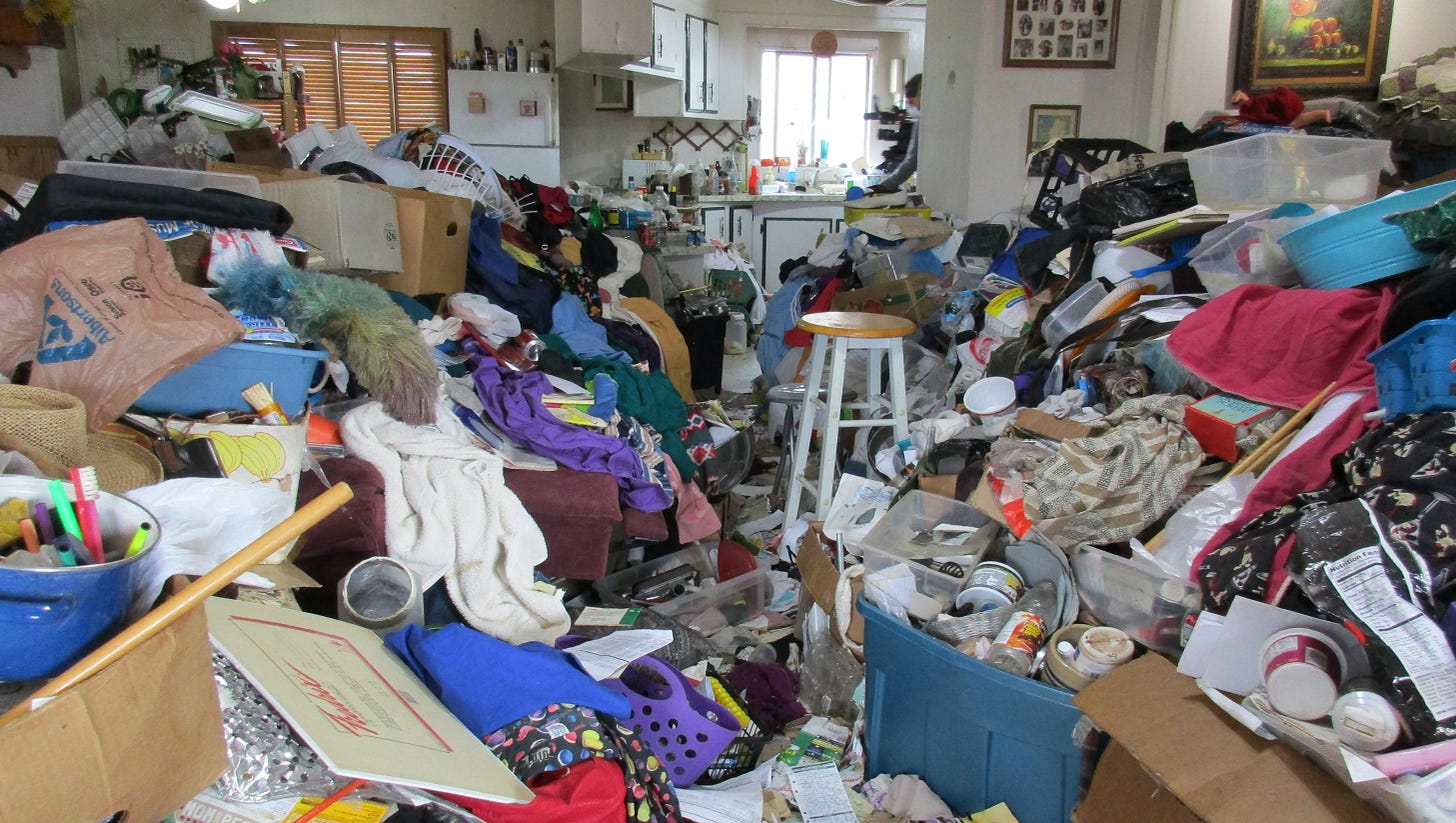Where Does All Our Crap Go When We Die?
Plus, HOW TO SELL A HAUNTED HOUSE
Over the weekend, I finished reading Grady Hendrix’s HOW TO SELL A HAUNTED HOUSE and really enjoyed the book. The novel follows a pair of dysfunctional siblings who, after the death of their parents, must put aside their differences and exorcise their family home from the demonic infestation that is preventing them from putting the house on the market. It’s sharp and funny and features excellent characters that skirt right up to the edge of being irreparably unlikable (the kind of character I love, by the way!) It would make a tremendous literary double feature with Josh Winning's THE SHADOW GLASS - two books about bitter children having to cope with the emotional baggage and scary creatures hefted on them by parents who played with puppets.
In HOW TO SELL A HAUNTED HOUSE, the siblings have a fight early in the book about what to do with their mother’s collection of puppets, dolls and homemade art projects. Reading the novel made me think about my own physical baggage and how it’s tied to my corresponding emotional baggage.
I’ve written in the past about how, over the years, I’ve treated various levels of depression by buying crap. DVDs and Blu-rays, books and comics, posters and collectibles, 35mm film prints (!) - I’ve spent a lot of money on crap as a way of dealing with larger emotional issues I was experiencing. This has led to me having quite a sizable collection of stuff. Some of it I’m quite attached to for sentimental reasons. Some of it I’ve already parted ways with without a second look back. That said, I’ve, in no way, curred my prediction to buying stuff I don’t really need.
I buy stuff because it reminds me of a happy memory (a trip, a first experience watching a movie or reading a book, or a person I love). I buy stuff because of how I think it will make me feel looking at it sitting on a shelf - “owning” art to elevate your own sense of self. I buy stuff to support the creator or the shop or sometimes just because I have some cash that’s burning a hole in my wallet. I buy stuff because that’s what humans with a disposable income do - buy stuff.
We accumulate so much stuff during our lives - and where does it all go? A few weekends ago I visited an antique store with my girlfriend and we saw bins of old photographs - stolen memories of the past now available three for $5 - and other treasures, all were fixed with a price tag. My current possessions would be so lucky to find an afterlife in such a shop. More than likely, the majority of the stuff that I own will find its way into a trashcan or Goodwill shop or (if the fates are friendly) Half Price Books.
I had a dream last night in which I was a child again. My family had just moved and we were looking at new homes. One of the potential homes was still finished by its previous owner - the walls were full of amazing movie posters and paintings and sculptures, all stuff I would buy. Similarly, there were cabinets full of movies and books, and other amazing treasures. I tried to talk my parents into buying the house - just so we could also potentially keep the leftover possessions. I thought, at first, this was some kind of wishful dream - a childhood chance to discover a treasure trove full of new possessions. But then I realized that I wasn’t actually the child in the dream. No, the child was visiting my home after my death and all the “treasures” were the things that I had left behind.
What’s the moral of the dream? I don’t know, besides the fact that it was morbid as hell. It’s not like I’m going to stop buying stuff I don’t need. Hopefully, I’ll do it less and less each year as my willpower (and life expenses) increase - but it’s still going to happen. No, I think the dream - as well as the introspection brought about by HOW TO SELL A HAUNTED HOUSE - is just a reminder that we can’t take it with us when we go. It was just a little perspective - possessions are cool, but they are intrinsically tied to the here and now. The stuff we own might outlast us, but we can’t dictate what happens to it when we go. For all the things we buy and create and give a home to in the world, their future is out of our grasp.
Enjoy the stuff while you’re there to enjoy it, but don’t collect just to collect. In the end, a collection is just as like to wind up in a trash can as it is in an antique store. Unless you’re a Pharoh who plans to bury all your wealthy belongings with you - in that case, buy all the crap you want.


